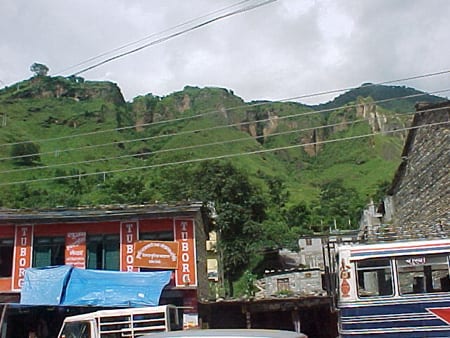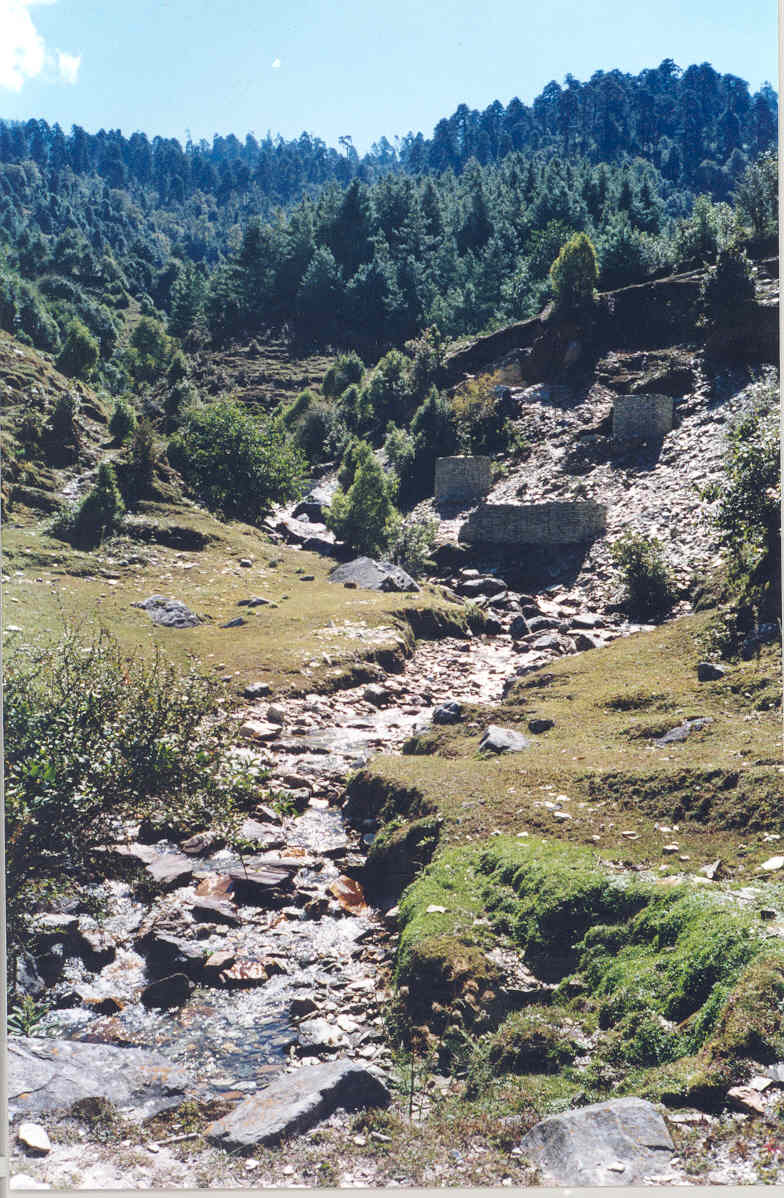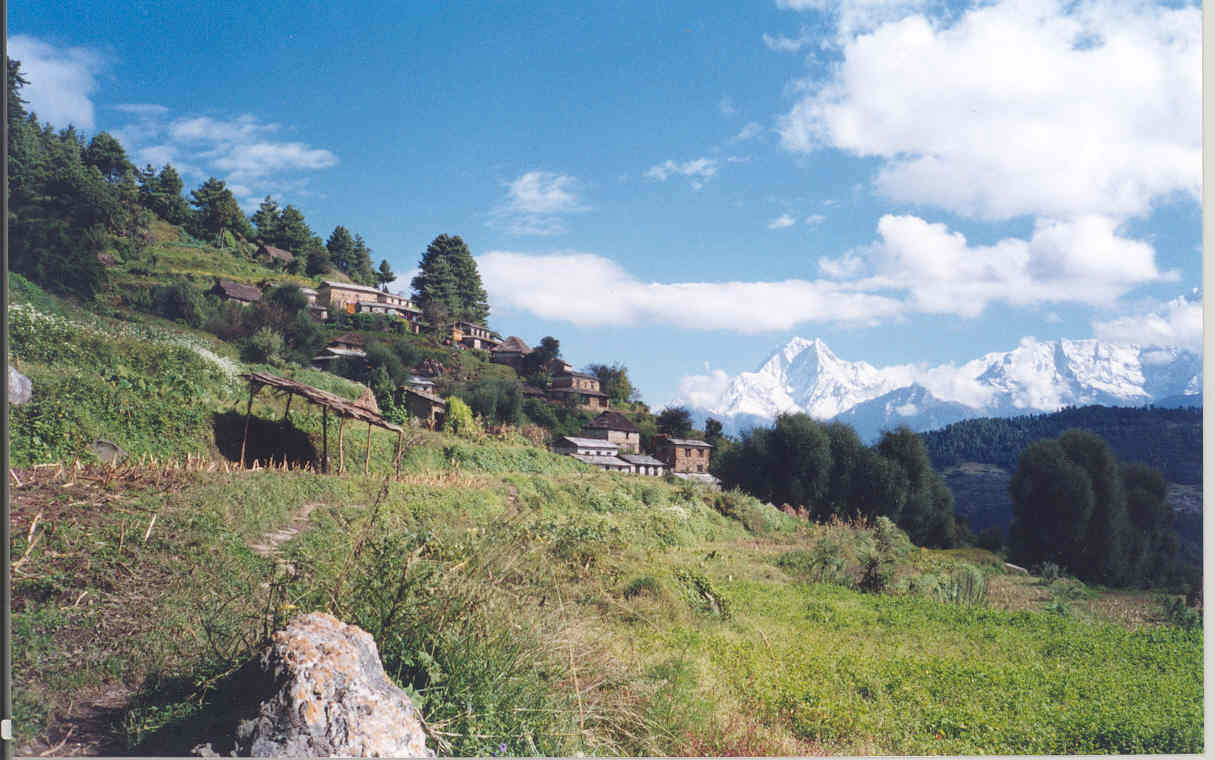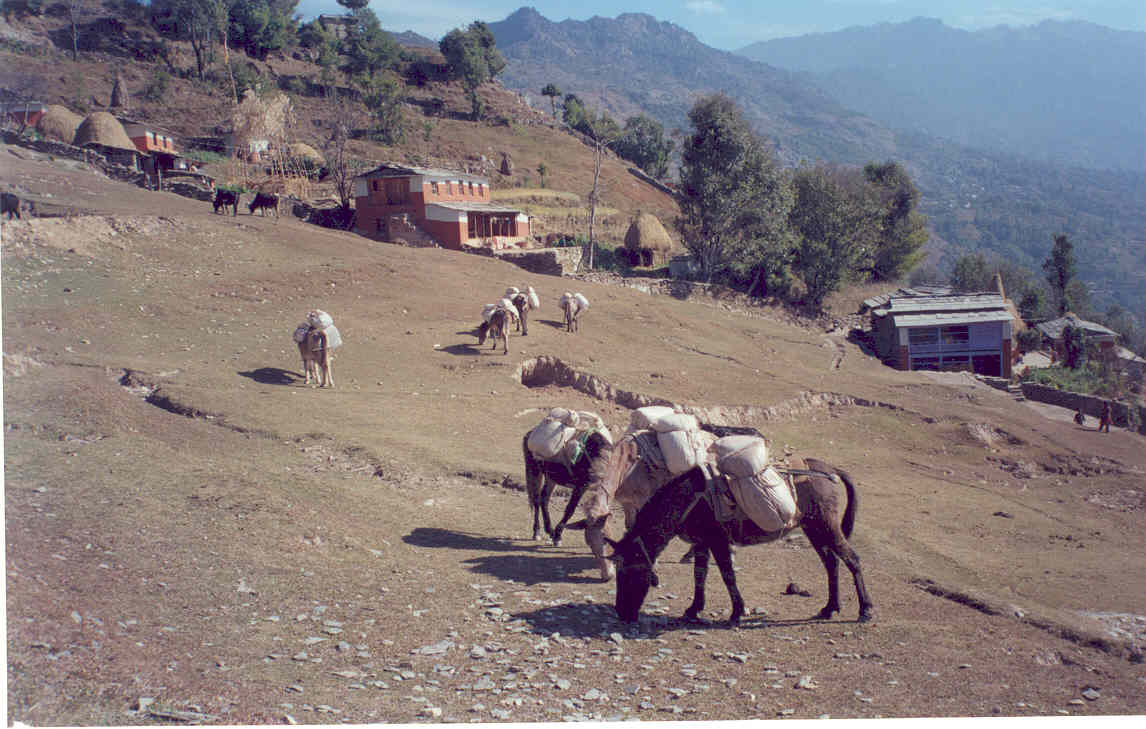Volunteering Cost & Travel Tips
Volunteers must arrange their own travel to and from Nangi, but former volunteers can offer a number of tips on what to bring and how to prepare for the experience.
All applicants must pay a non-refundable $100.00 USD application fee to Himanchal Education Foundation. This covers room and board for up to 4 weeks in Nangi Village. A $25.00 USD fee is accessed for each additional week to cover room and board expenses. All fees, minus the non-refundable $100.00 USD application fee, are refundable if an applicant cancels before arrival to Nangi. No fees are refunded once an applicant arrives in Nangi. The application must include a hard copy of your signed application and your medical and travel insurance information. Incomplete applications will not be accepted.
Payment of Application Fee
Easiest and preferred Method
Alternate Method (slower)
Mail a check to:
Himanchal Educational Foundation
c/o Kearney Area Community Foundation
412 W 48th, # 12
Kearney, Ne 68845
Following the application fee payment, you must also notify Himanachal Education Foundation Board (click here to send an email notification).
Please direct any questions you have on the application process to Dr. Ron Konecny (click here to email a question about volunteering).
Travel to Nangi
Once admitted to the program, volunteers will receive detailed information about intra-Nepal travel and other arrangements that will be helpful to their planning and preparations. Participants must pay for their own air tickets to Nepal, meals and hotels in Kathmandu, Beni and Pokhara, and the cost of transportation to Nangi. When in Nangi, however, volunteers will have no major expenses aside from small items that they may purchase from local shops.
Reaching Nangi will require travel by bus (10 to 12 hours) or air (35 minutes) from Kathmandu to Pokhara. One way bus fare usually ranges from $14 to 24 USD, while airline tickets are approximately $150 USD. From Pokhara, volunteers can take a taxi ($35 USD, three hours) or bus ($ 4-6 USD, six hours) to Beni. In Beni, they will meet a representative from the school who will guide them to Nangi village. If a porter is needed to carry your gear to Nangi than plan to pay each porter $10 to $12 USD. The hike into Nangi typically takes 6-9 hours, and includes a trek through several mountain villages and pine forests. The total miles walked are about 10 miles but the elevation gain is over 5000 feet so be prepared for a strenuous trek. If you get a late morning start or are unable to complete the trek in one day you can stay overnight at a tea house along the way and finish the walk to Nangi the next day.
What to Bring
- Sturdy waterproof walking shoes. Flip flops are useful around the village, and can be purchased in Nangi or other towns.
- Clothes appropriate for the weather and culture (see climate section). Culture appropriate clothing included shirts with sleeves, long pants for men and women or long skirts for women. A warm waterproof coat in winter and an umbrella during the monsoon are essential. Consider using a layered approach to clothing as described in trekking magazines and web sites. These are synthetic and waterproof clothing that dry quickly, pack easily and can be layered for the constant changing climate.
- A towel and washcloth.
- Toiletries (soap, shampoo and laundry detergent powder or bars can be purchased from local shops).
- A headlamp or flashlight.
- Rechargeable batteries and charger.
- Sleeping bag if you plan to travel. Blankets, sheets and pillows are provided in the volunteer houses.
- Any medicines you might want or need. It is advisable to bring along the travel basics, such as over the counter pain relievers, diarrhea medication, antacids, Band-Aids and first aid cream. A basic prescription-strength antibiotic, such as azithromycin or an equivalent, can be extremely useful for gastrointestinal infections.
- Sunscreen 30%. Nangi is at about 7,000 feet (2,200 meters), so sun exposure can be intense.
- Insect repellent such as 30% DEET.
- Water treatment filter or chemicals. Water can be made safe by boiling for 3-5 minutes but it is good to have a backup system.
- A shortwave radio can be useful for listening to the news. Nangi’s altitude makes it easy to pick up programs broadcast from around the world in several languages.
- Satellite phone
- Snacks and foods such as cheese, nuts, chocolate, pasta, jam, ketchup or other commodities can be purchased in Pokhara to sooth any cravings.
- Photos of your family and friends are always appreciated and are an easy way to help villages get to know you better.
- A musical instrument, if you play one, will win you many friends.
- The volunteer house has a computer which can play music CDs.
- A tape recorder can be an excellent teaching tool which students can use to listen to themselves speaking English (or to start up their own village rock band).
- Small items such as stamps, postcards, trinkets, sewing kits, healthy treats from your home country make appropriate gifts. Extra clothing can be left behind when you leave and teaching materials or books can also be donated to the library for future use.
- Camera and/or video cam are acceptable. Just ask permission before photographing anyone.
- Personal laptops can be used or computers are available with Internet access at the school.
- Make an appointment with your family doctor or a travel clinic three to six months before your expected departure to obtain necessary vaccines, prescriptions and information on health risks in the areas you will be traveling.
- Malaria is not a risk in Nangi but is a risk in other parts of Nepal. If you plan to travel to other areas of Nepal or other countries with malaria warnings advise your doctor. Check the web site for the Centers for Disease Control and Prevention in the USA http://wwwn.cdc.gov/travel/default.aspx or equivalent in your home country for up to date information on travel health issues and advice.
- Untreated water can harbor microorganisms such as viruses (polio, hepatitis), bacteria (cholera, salmonella, streptococcus), and parasites (Giardia lamblia, Cryptosporidium). Exposure to these organisms can cause serious illness, and in some cases may be fatal. Bring a reliable water treatment system or chemicals as a backup to boiled water.
- Travel to any developing country assumes risk for injury, illness and death due to lack of adequate health facilities and trained practitioners. Nangi has a small clinic staffed by local healthcare workers. Serious injury or illness should be treated at a larger facility located in either Pokhara or Kathmandu. It is advantageous to obtain information from your government on suitable health care facilities in the areas you travel prior to departure.
- Always notify your native embassy in the foreign country you are visiting about your arrival, departure and travel itinerary. This helps them find you if there is an emergency at home. This can be done via Internet prior to departure.
Learning Nepali
While learning Nepali is not necessary for volunteering in Nangi, knowing even a few simple sentences will greatly improve the quality of your time there. Villagers generally appreciate any effort you make, and using Nepali will help you meet more friends, understand the culture and travel independently. There are many books and resources available which can help you learn some of the basics. For some useful resources, see:
- TEACH YOURSELF NEPALI
Hutt & Subedi (NTC Publishing Group) Comes with cassette tapes or CDs (in Nepali only).1999. - NEPALI PHRASEBOOK
O’Rourke & Shrestha (Lonely Planet) - A COURSE IN NEPALI
Dave Mathews
Most bookstores in Kathmandu and Pokhara also carry a number of excellent Nepali language textbooks and guides to help you learn.




